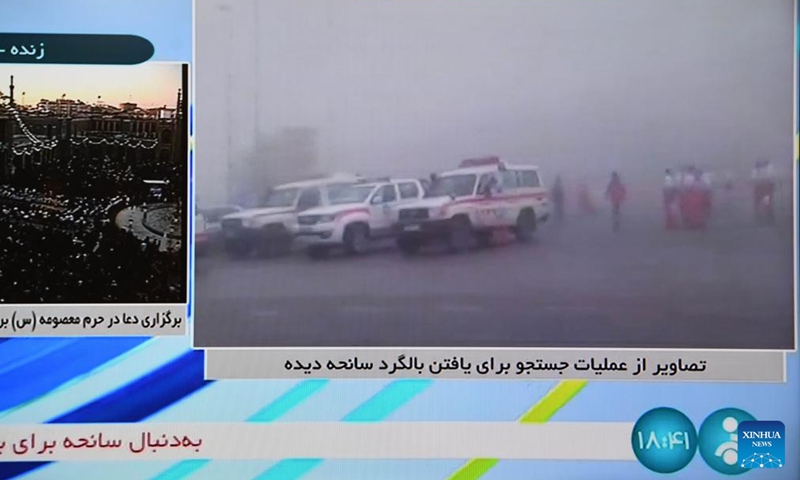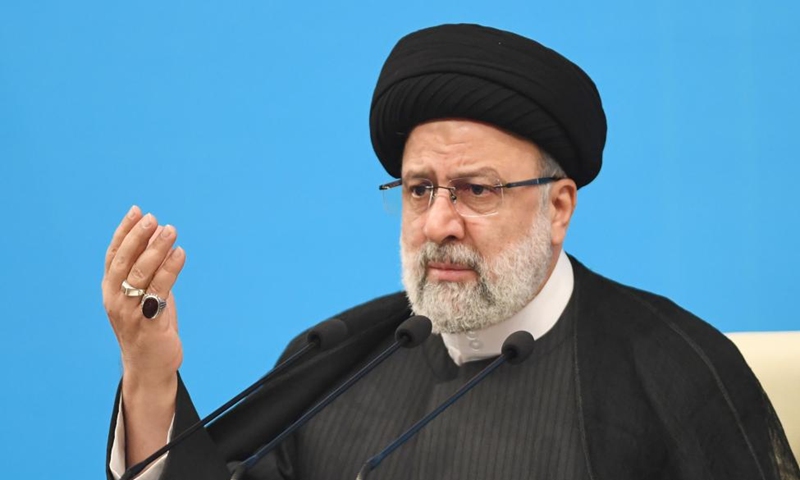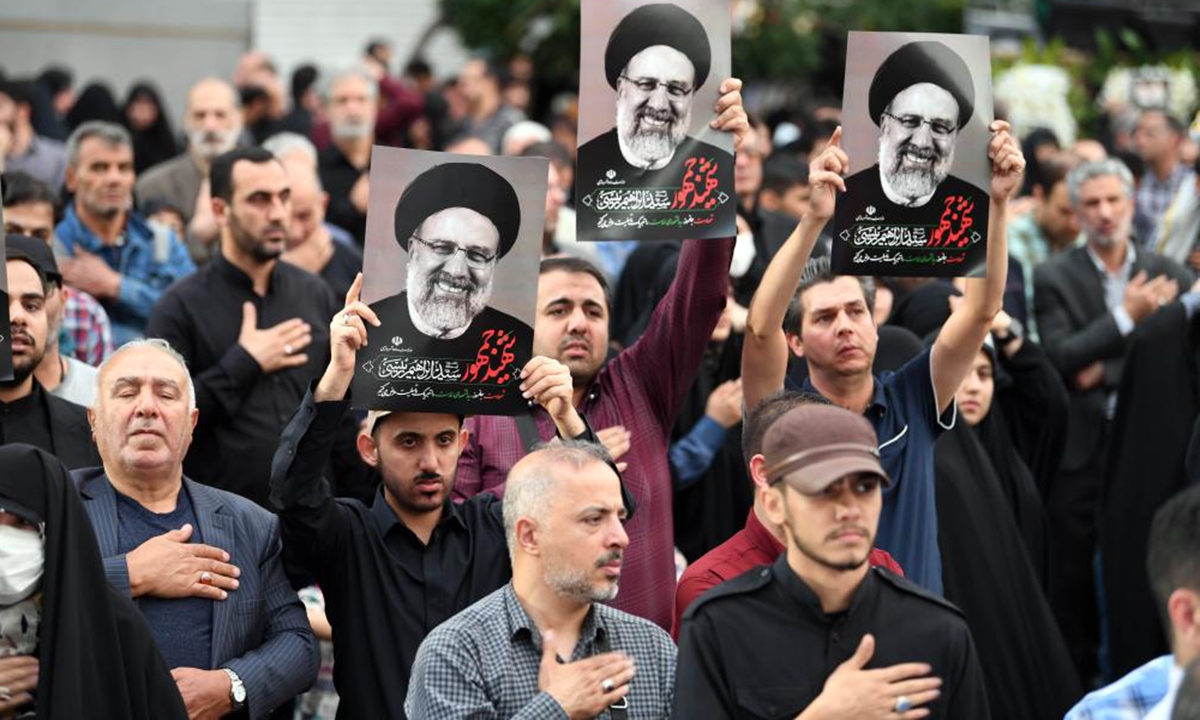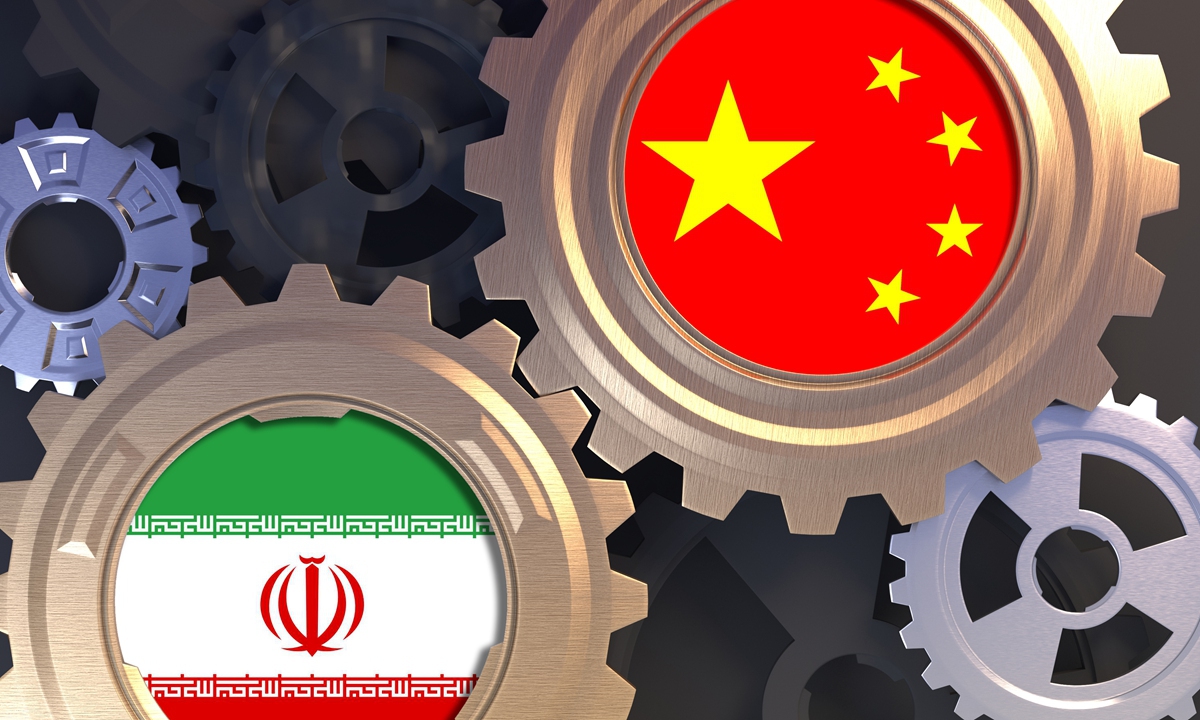Wang meets Iranian deputy FM, vowing support
Tragic accident unlikely to impact foundation, direction of bilateral ties: experts
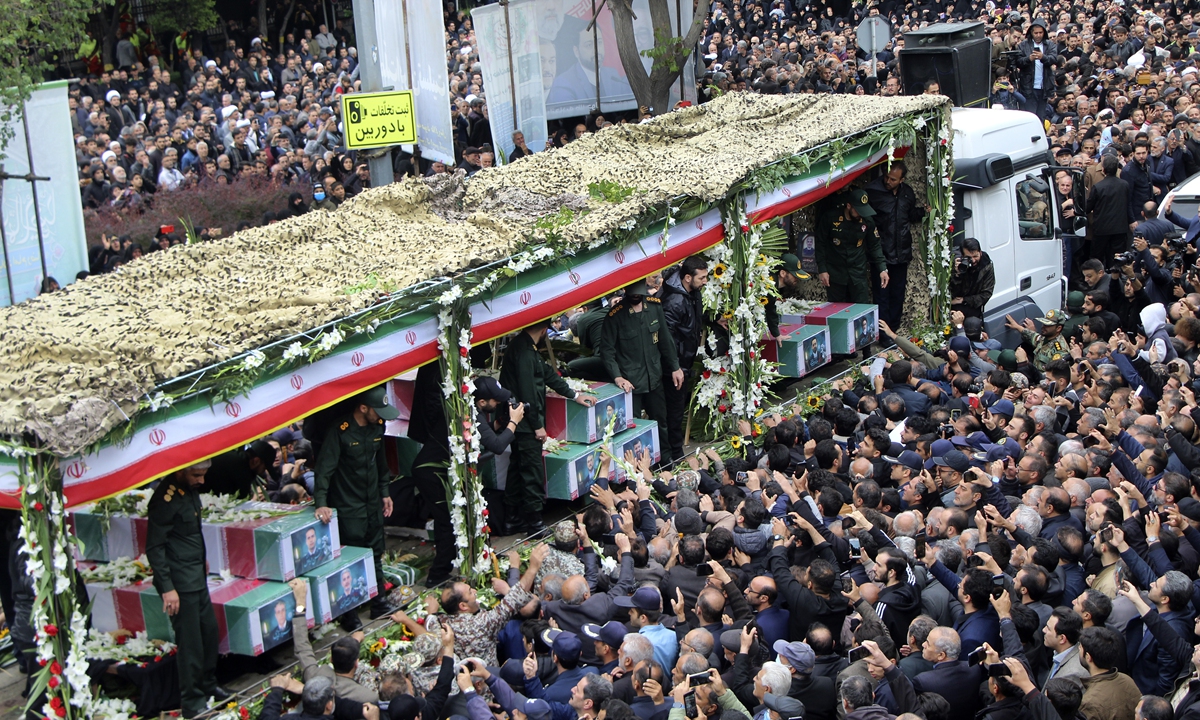
In this photo provided by Fars News Agency, mourners gather around a truck carrying the coffins of Iranian President Ebrahim Raisi and his companions who were killed when their helicopter crashed on May 19, 2024 in a mountainous region of the country's northwest, during a funeral ceremony at the city of Tabriz, Iran on May 21, 2024. Photo: VCG
Following the tragic helicopter crash that killed Iranian President Ebrahim Raisi, Foreign Minister Hossein Amir-Abdollahian and several other officials on Sunday, Chinese and Iranian officials have reiterated their resolution to continue to strengthen the strategic cooperation between the two countries, as experts noted that the passing of Raisi will not affect the overall direction and development of China-Iran relations, nor will it bring about fundamental changes in Iran's domestic politics.On Tuesday, Chinese Foreign Minister Wang Yi met with Iranian Deputy Foreign Minister Mahdi Safari who represents Iran to attend the Shanghai Cooperation Organization (SCO) Council of Ministers of Foreign Affairs in Astana. Wang once again expressed his condolences and sympathy for the unfortunate passing of Raisi and Abdollahian.
"Regardless of how the situation may change, China will continue to strengthen strategic cooperation with Iran, safeguard common interests and make efforts for regional and global peace," Wang said.
Safari thanked Chinese side for its steadfast support to Iran, and emphasized that Iran's domestic and foreign policies will not change. "Iran attaches great importance to its relations with China and is committed to enhancing cooperation in various fields such as politics, economy, and culture," he said, stating that Iran is willing to continue the relevant processes and work toward improving relations with regional countries.
China's Executive Vice Minister of Foreign Affairs Ma Zhaoxu held a phone conversation with Iran's acting Foreign Minister Ali Bagheri on Monday night, sending China's deep condolences and sympathy to the government and people of Iran over the tragedy.
Bagheri appreciated the announcement of the Chinese side's readiness to help the Iranian side during the first hours after the tragic event and Beijing's assistance in the past 24 hours, thanking Chinese officials for extending condolences and making phone calls today.
Bagheri noted that this is a sign of the depth of the strategic partnership between the two countries and their friendship as well as the support the two governments to give each other in critical times. Iran is determined to continuously advance cooperation with China in all areas, he said.
Although the unexpected death of Raisi may cause a temporary vacancy for the successor to Iran's Supreme Leader and cause ripples to the internal power structure, Chinese experts believe that the accident will not affect relations between China and Iran, as senior officials from both sides have vowed.
The foundation of the relationship will not be disrupted, as the overall framework of bilateral ties remains stable and solid, indicating that the incident will not significantly impact the relationship between the two countries, Zhu Yongbiao, director of School of Politics and International Relations of Lanzhou University, told the Global Times on Tuesday.
What's more, Zhu pointed out that Iran still sees strong anti-America sentiment in the country, under such a circumstance, there is a strong demand for pragmatic cooperation with China.
Aside from the bilateral cooperative framework, China and Iran also have multilateral platforms for communication and cooperation, such as SCO, which enriches the channels for dialogue and collaboration between the two countries, while China and Iran also have significant consensus on various regional issues.
While Iran's First Vice President Mohammad Mokhber has currently assumed the interim presidency, Iran's government announced on Monday that the country's 14th presidential election would be held on June 28, the official news agency IRNA reported, as quoted by the Xinhua News Agency.
Although the passing of Raisi may impact Iran's crisis handling in the short term, analysts believe that the overall direction of its domestic and external policies will not be fundamentally altered.
Raisi has made significant achievements in improving relations with neighboring countries and expanding Iran's international relations during his tenure, Liu Zhongmin, a professor at the Middle East Studies Institute of Shanghai International Studies University, told the Global Times on Tuesday. "Iran successfully joined the SCO and the BRICS cooperation mechanism, enhancing Iran's international presence."
Liu pointed out that the next step in the domestic policy direction is worth watching out for, as it remains to be seen whether the current conservative political direction of the government will continue or if the upcoming election on June 28 will shift toward a moderate direction.
Raisi's funeral will take place on Thursday in the northeastern Iranian city of Mashhad, said Iranian Vice President for Executive Affairs Mohsen Mansouri. Five days of national mourning was declared by Iran's Supreme Leader Ali Khamenei on Monday, Xinhua reported.
